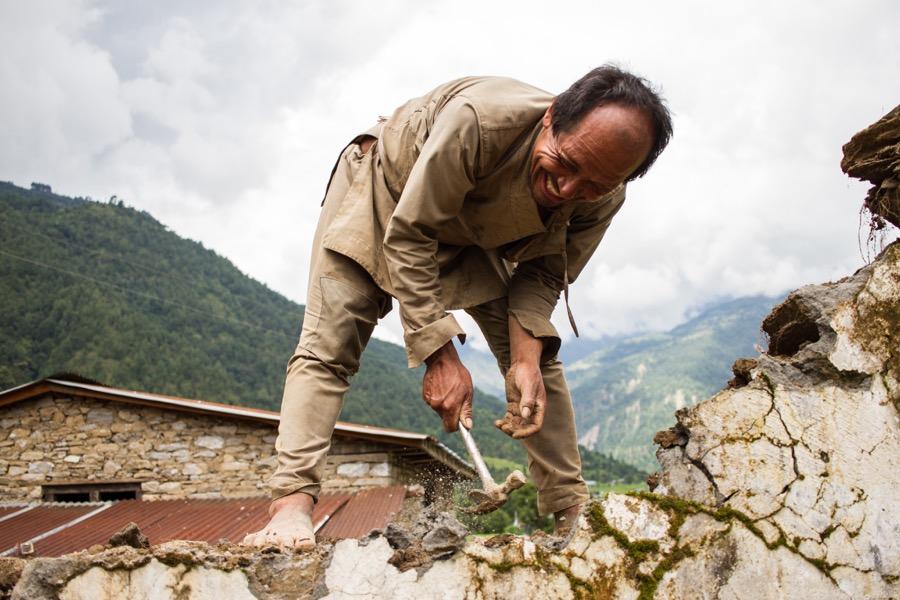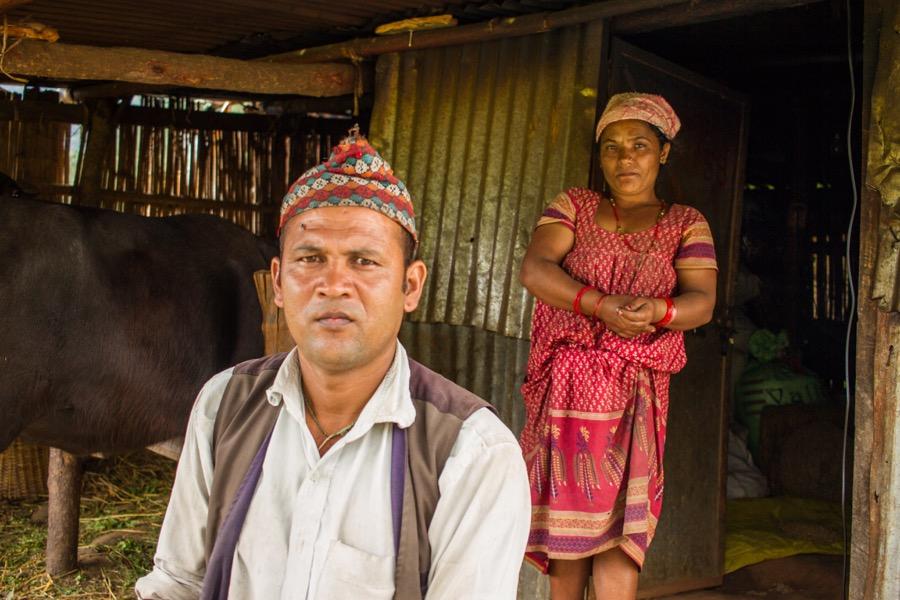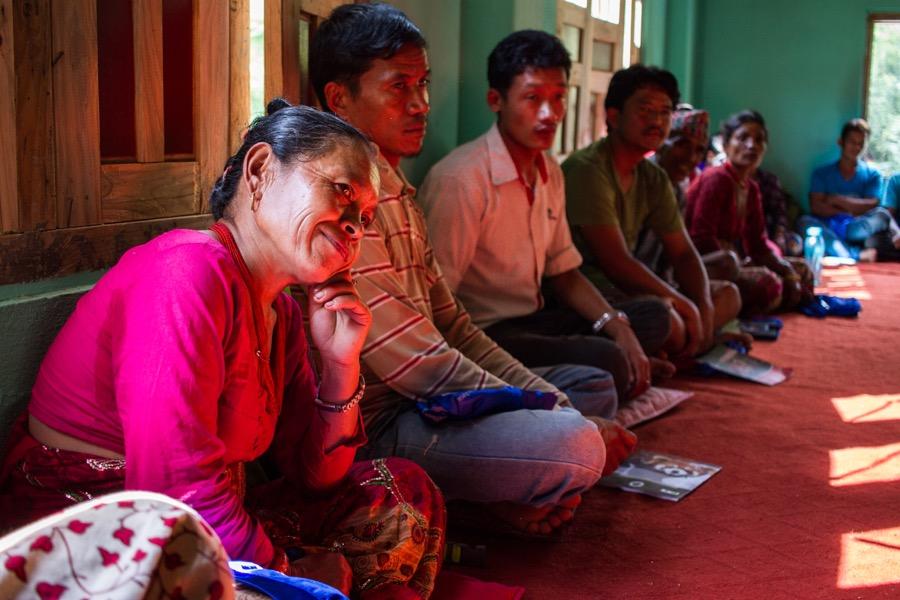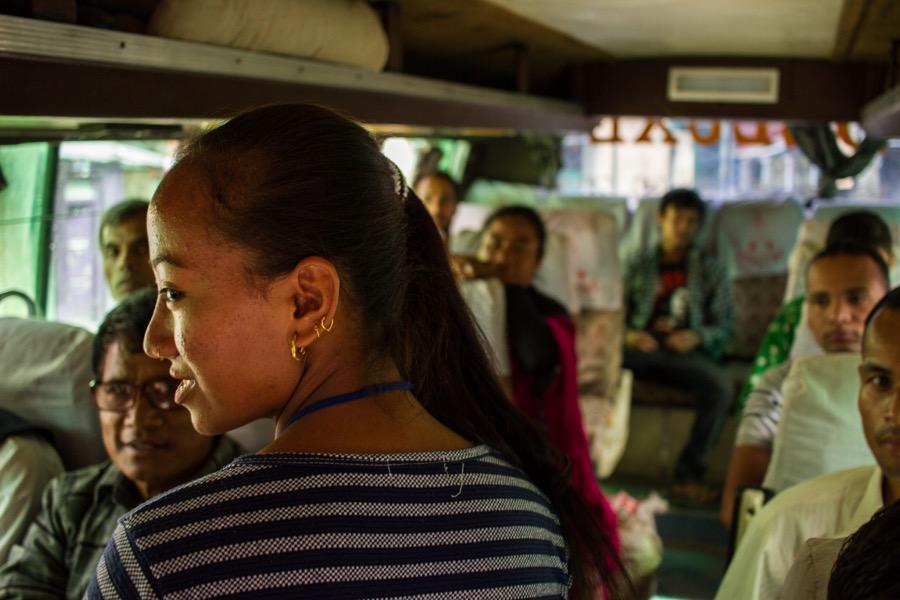Nepal earthquake survivors are falling prey to human trafficking
Asmita Tamang, a social worker with Next Generation Nepal, inspects a bus for suspected trafficking victims in Sindhupalchok district.
Prem Tamang is doing everything to keep his family together, but without a home or reliable job, his family is vulnerable to the human traffickers preying on the victims of last year’s earthquake in Nepal.
In desperation, he’s moved his wife, 12-year-old son and 5-year-old daughter from their destroyed farm to find work. They’ve traveled hours from their village and work for $2 a day, clearing rubble from someone else’s home.
“We don’t even have a place to sleep. We’re just sleeping outside,” he said, as they took a break from lifting rocks from the collapsed house.
Families like his are easy targets for human traffickers. They have little choice but to trust a promise of overseas work or education. Many are sold into a global network that includes the dance bars of Kenya, the brothels and underground organ clinics of India, “paper marriages” of South Korea and China, home-cleaning services in the Middle East, slave labor in South Asia and smuggling rings at the Mexico-US border.
Although numbers are hard to come by, police and activists estimate there’s been a 15 to 20 percent increase in cases since the earthquake.

Millions of people across the country's earthquake-ravaged districts are struggling to survive, like the Tamang family. They were spared in the April 25, 2015 earthquake and subsequent aftershocks that killed nearly 9,000, but were among the 602,000 families who lost their homes and livelihoods.
They tried to dig their grain stores from the rubble, but it was ruined by bacteria. Huddled under corrugated tin shelters, they’ve survived two rainy monsoon seasons on bags of rice provided for emergency relief. As the months turned into a year and a half, they’ve held onto the government’s delayed promise of money to rebuild.
The first installment of $500 out of a total $3,000 grant filtered to the villagers the last couple of months, but for many, it’s too little too late.
“We can’t rebuild with this money. It’s not enough,” Pramesh Acharya said as he waited in line to receive his $500. Many plan to use the money to repay debts they’ve accrued without work or to celebrate Daisain, Nepal’s largest festival that coincided with the grant disbursements.
Acharya said he would use the money to buy new clothes and food for his family and use what was left to start rebuilding. However, the government has said it would not give out the rest of the money if families don’t use it for reconstruction. Others, like the Tamang family, didn’t receive any money because they lacked the right paperwork to qualify.

The earthquake chose its victims mercilessly: mostly the impoverished farmers who eke a living out of Nepal’s hills. Their mud and stone houses collapsed. Mountains crumbled into landslides on top of them. And their homes became graves for their livelihoods: family members, animals and grain buried in the rubble. Collectively, they lost over $40 million and many, many hours of work from their fields, according to Nepal’s National Planning Commission post-earthquake damage report.
The combination of delays in rebuilding, established criminal networks and people increasingly desperate for cash could result in an epidemic of human trafficking.
Nepali police and nongovernmental groups are scrambling to contain the surge. They’ve increased the number of checkpoints where police and social workers monitor buses and have run awareness campaigns in vulnerable villages.
The Nepali police say they’ve caught 352 suspected traffickers taking people from earthquake-affected districts, but for every one caught, many more escape.
Deputy Inspector General Ram Kumar Khanal, who is in charge of police investigations of crimes against women and children, said it’s difficult to catch traffickers because the victims willingly cross international borders, believing the promises of a job.
“Even the victims don’t want to report [their cases to the police]. They want to hide the cases,” he said. “And once they pass the border, it becomes difficult for us. It’s beyond our territory.”
But some of the most heinous crimes occur within Nepal’s borders. In September, an American was arrested in Kathmandu’s tourist area for molesting children brought to him from a children’s home. The traffickers allegedly gave the children’s parents money and promised that the kids would get jobs in the city, according to Nawa Raj Silwal, the director of Nepal’s Central Investigation Bureau, which is investigating the case.
“I think the earthquake contributed to this crime to some degree,” he said. “Many children from the earthquake-affected area have been brought to the city.”

Local activists are also trying to help families stay together by training and financing small businesses like raising chickens or goats. In the village of Ichok in the Sindhupalchok district, which is one of the worst-affected areas both by trafficking and the earthquake, Partnership Nepal, a local NGO, selected 200 of the most vulnerable families and are giving them $350 grants to start businesses.
With the growing poverty and an entrenched pattern of trafficking, Sunita Bhukhaju, who runs the NGO, says it feels like an uphill battle. “A man marries one woman and sends her abroad, then marries another woman and sends her away.”
The future is tenuous — her organization only has funding for three more months.
“It’s really bad for us,” Bhukaju lamented. “I live here and have worked here for six years. But after the earthquake, [trafficking] is increasing day by day. And after three months, the office might close, so there won’t be anyone to stop them.”
Stephen Groves reported from Kathmandu and Sindhupalchok district, Nepal.
